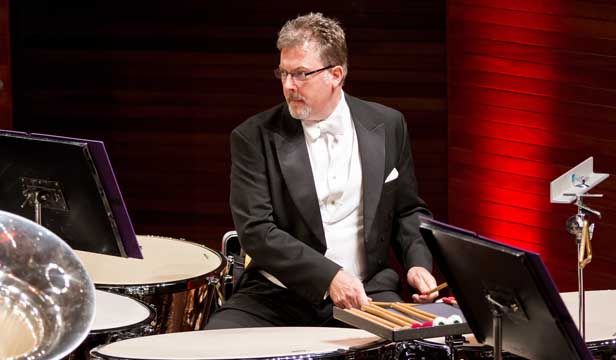Kiwithrottlejockey
Admin Staff
XNC2 GOD

Posts: 32251
Having fun in the hills!
|
 |
« Reply #25 on: October 20, 2013, 10:20:42 pm » |
|
Meet the musicians behind the moviesMusic and sound make a movie.By AMY JACKMAN - The Dominion Post | 3:31PM - Sunday, 20 October 2013 DRAMATIC DRUMMER: NZSO principal timpanist Larry Reese enjoys recording movie scores.TRY TO imagine how scary Jaws would have been without the buh-dum buh-dum noise following the shark around. DRAMATIC DRUMMER: NZSO principal timpanist Larry Reese enjoys recording movie scores.TRY TO imagine how scary Jaws would have been without the buh-dum buh-dum noise following the shark around.
Would you still have cried at Mufasa's death in the Lion King without Hans Zimmer's score?
Behind every great composer is a group of great musicians and a rising star on the scene is the New Zealand Symphony Orchestra.
In the past year it has been involved in recording film scores for movies such as the second Hobbit movie, Mr Pip, and the Arnold Schwarzenegger and Sylvester Stallone blockbuster Escape Plan.
New Zealand Symphony Orchestra principal timpanist Larry Reese said the orchestra was becoming more sought after for films.
"Composer and conductor Alex Heffes did a film with us last year, Emperor, which was filmed here as well," he said.
"He so liked what he got with us that on his next project, which happened to be the Hollywood blockbuster Escape Plan, he convinced the studios to delay their post-production until we were free."
"He said, ‘You won't regret the time delay, because this orchestra is so good’."
Mr Reese said that with modern technology, an orchestra's location was no longer a barrier.
"It's extraordinary. We can have a link from the Michael Fowler Centre to Park Road Post in Miramar and they have a giant link in almost real-time to Hollywood and they will be listening to what's happening."
"That technology allows a lot of people to collaborate on the post-production process."
"The conductor could be communicating with people in London or Los Angeles or Prague and make instant changes to the music."
The film director was normally at the recording and music producers followed the score in a control room, Reese said.
Movie scores can take from two days till 10 or more to finish.
"We can do the whole score in three days if there's no money for a longer time period, but usually for a two-hour film that has 70 to 80 minutes of music, we will take 10 days," he said.
"When we do a CD recording of classical music, we average between 12 and 15 minutes of useable material in a three-hour session."
"For a film, because it's more collaborative, we might play a piece really well, but the movie director will say, ‘That's nice, but I want more of a scary bit here or more of a magical mystery bit here’."
"The conductor has to translate that into musical direction. It can completely change the feel of the piece."
"Sometimes we can do a three-minute piece of music six or eight times just to give the movie people options for what they will actually mix with the film."
"It has a few challenges, because it has to be perfect every single time."
The music is played directly to the moving images.
"What the composer writes is supposed to line up exactly with what is happening on screen," he said.
"We are the end of a long post-production process, so most of the movie has been finalised when we play the score."
"We don't see the pictures, but the conductor has a giant TV screen in front of him. It has the pictures from the movie and lots of time code information."
"There are streamers that travel across it, which give him visual clues as to when the music should change."
"We play along to a click track, so we know exactly how long and at what speed to play."
Reese said some members of the orchestra would bring books or another activity to the recording because they would not be needed as often.
"It can be tedious if you don't play much, but you still have to be like a sprinter on the blocks, ready to go as soon as the gun goes off," he said.
"For me it's the music that adds impact to the visual imagery."
"When I'm sitting on the scoring stage, no matter what I'm asked to play, knowing I'm contributing to the last little bit of frisson for the audience is really exciting."
But, Reese said, the best part was "watching the films and being able to go, ‘That's me’."
"Like in Fellowship of the Ring, where Gandalf says, ‘You shall not pass’. There's a huge orchestral moment with lots of timpani in it — that's me."
The NZSO has recorded 17 film scores, including parts or all of:
❏ The Hobbit: Desolation of Smaug, 2013.
❏ Mr Pip, 2013.
❏ Emperor, 2012.
❏ Escape Plan, 2013.
❏ Lovely Bones, 2009.
❏ Under The Mountain, 2009.
❏ Lord of the Rings: Fellowship of the Ring, 2003.http://www.stuff.co.nz/dominion-post/culture/9293104/Meet-the-musicians-behind-the-movies
|